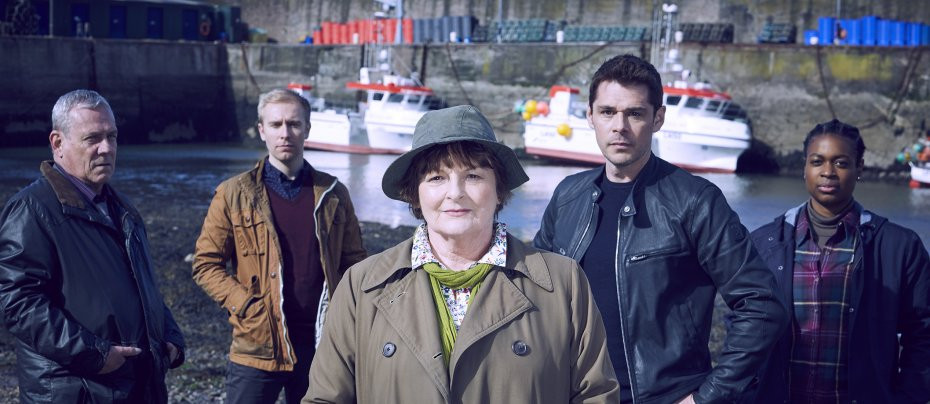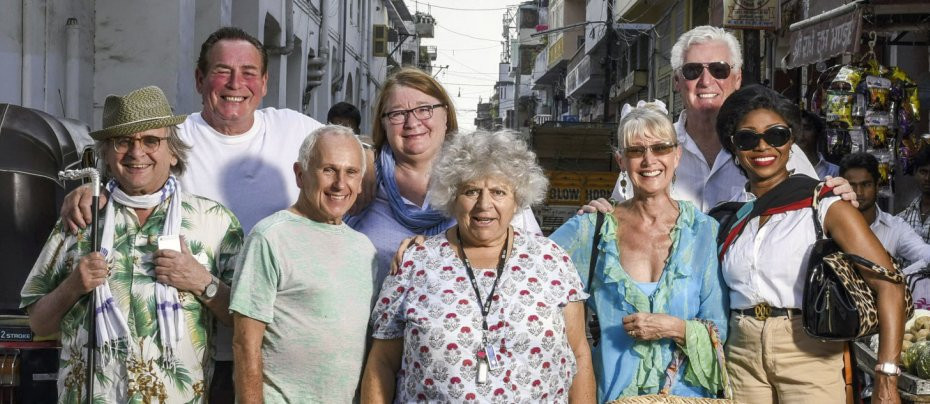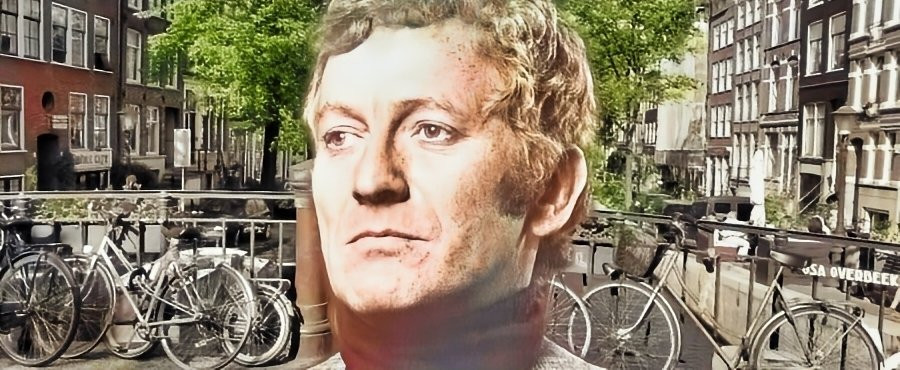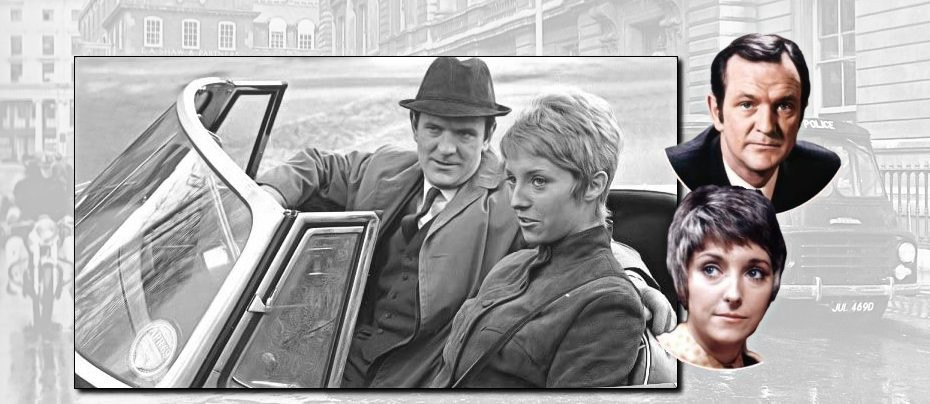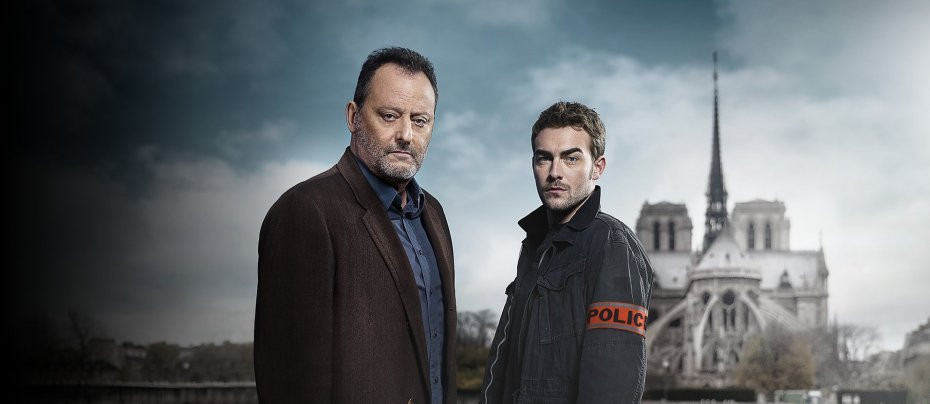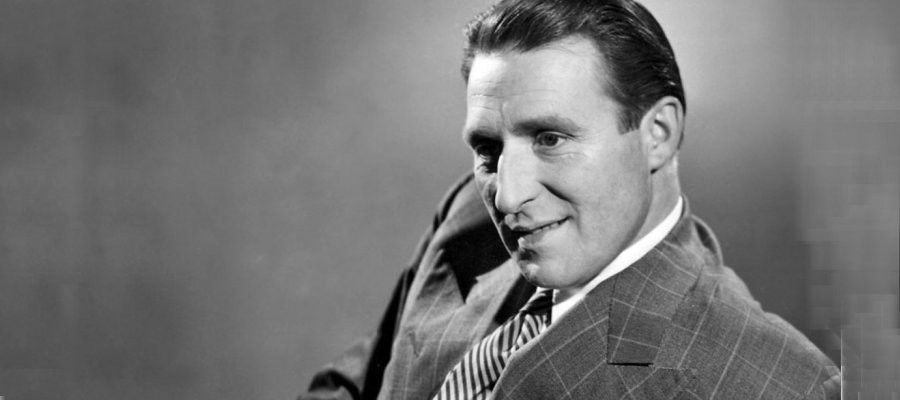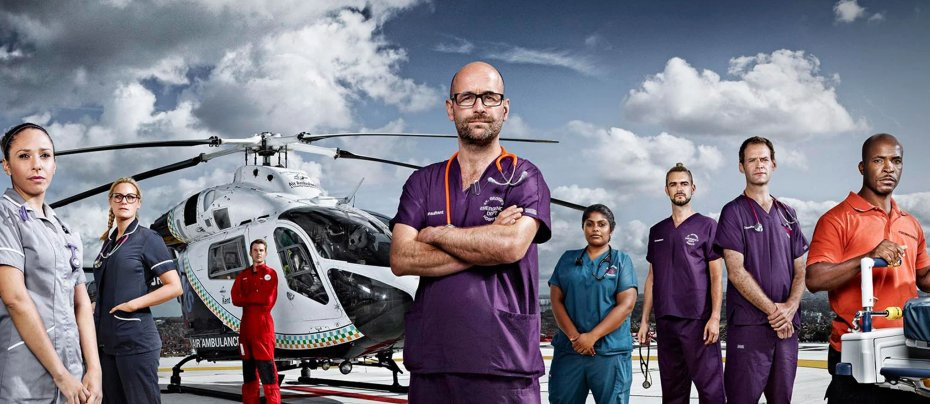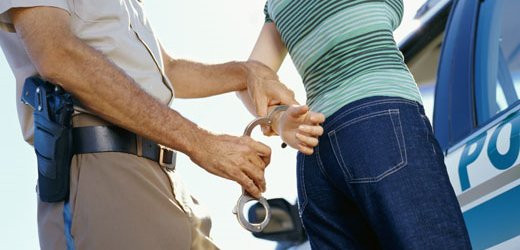
True Crime Shows
Article: Andrew Cobby
"I watch because I take a ghoulish interest in the misfortune of others. These channels make a heartfelt plea to the Peeping Tom in all of us"
When I was a kid I used to love watching those shoot'em'up American cop shows. If someone were to ask me now about 1976 I would say 'That was the year we first got Starsky and Hutch.' Then I might add, as an afterthought, it was also the year of that long hot summer and the year that Teesside was almost blown up by a huge fire somewhere in the chemical complex that used to be ICI.
I remember that fire, because I was terrified by it, and spent years trying to recall the date on which it happened. The only thing I had to go on in my investigations was that it coincided with an appearance from Edward Heath on Good Afternoon on Tyne Tees and with the transmission of The Blue Lampand a programme featuring Victor Borge on the BBC. Thanks to the BBC Genome Project, which provides a digitised database of Radio Times editions all the way back to 1923, I was able to plough through a whole summer's worth of back numbers until I managed to pinpoint the date as Monday 23 August 1976.
For those who, like me, care about BBC scheduling in the 1970s, I have gleaned from the Radio Times that Starsky and Hutch was first broadcast on Friday 23 April 1976 at 9.25pm, after the Nine O'clock News. In the North East, at least, it was followed at 10.15 pm by Coast to Coast. This was a discussion show, hosted by Eric Robson, in which the participants stroked their chins and spoke at great length about local issues.
I didn't know it at the time but its theme tune was Layla by Derek and the Dominoes. Eric Clapton intended Layla as a love song with which to woo his young lady but, whenever I hear it, I assume it's the prelude to an intense discussion on the lack of public toilets in Ambleside and reach for the off button.
Despite this, I am pleased to say Eric Robson can still be seen on our screens today. He can usually be found following one of Wainwright's Walks in and around the Lake District.
My mam and dad wouldn't let me watch programmes like Z-Cars and The Sweeney, probably because the violence was, literally, too close to home. They were perfectly happy for me to watch American shows. I think they reasoned that, as long as there was the Atlantic Ocean between me and the violence, it couldn't possibly have any adverse effects. So, I got to enjoy the likes of Ironside, Hawaii Five-O and Cannon, all of which offered guaranteed gunsmoke, murder and mayhem. Parents, eh?
I wasn't troubled at all by the senseless murder on screen but I do remember being anxious about the health of cuddly Frank Cannon. He always seemed on the verge of collapse whenever he was called on to do anything strenuous like eat the living daylights out of a burrito. If you think this is a strange thing for a young lad to worry about, well, that's what worriers do. We worry. About anything.
Now that we have wall-to-wall television, we can watch tales of real-life murder on dedicated channels Investigation Discovery and Crime and Investigation. Real crime, all the time, to use the on-screen slogan of one of these murder channels.
Programmes on the murder channels usually have the same format. A soothing voice-over, interviews with police and relatives of the victim and scenes of re-enactment.
The murder channels attempt to legitimise their output by having talking heads like psychologist Emma Kenny and investigative journalist Mark Williams-Thomas explain how the programmes shine a light on human behaviour, to help us come to terms with our own weaknesses and to make positive life choices. This is very worthy and I don't doubt their sincerity but, despite this lofty reasoning, this is not why I tune in.
I watch because I take a ghoulish interest in the misfortune of others. These channels make a heartfelt plea to the peeping tom in all of us, such that I sometimes feel I should be watching their output through a pair of binoculars.
It is not something I am proud of but, if I had a time machine, I would whisk myself all the way back to eighteenth century London. Once there, I would elbow my way right to the front of the queue of those people waiting to gawp at the inmates of Bedlam. It was a close-run thing but, in the time travel stakes, it just nudges being present at the Gettysburg Address into second place. Sorry Abe, but if anyone would understand, you would.
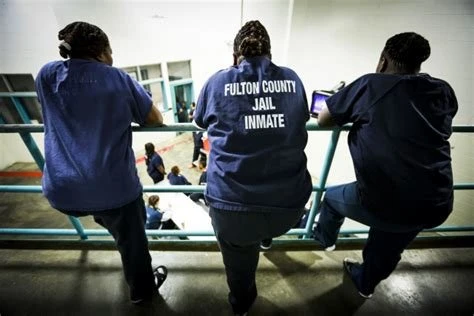
There's a sort of equivalent of this on TV now in the form of The Jail Atlanta - 60 Days In. Members of the public go undercover amongst the inmates of Fulton County jail to act as the eyes and ears of chief jailer Colonel Mark Adger. I don't know what he's Colonel of. Perhaps it's his real first name like Colonel Abrams who, fittingly, had a huge hit in the mid-1980s with Trapped. I love it when a connection comes together.
For those who lead busy lives and can't be bothered watching the whole series, the countless trailers tell you all you need to know. I particularly enjoy the trailer in which one of the instructors instructs the volunteers beforehand that, if they ain't scared, they should be. You don't have to be a detective to know that the volunteer inmate wearing the dickie bow is going to be in big trouble when the cameras aren't rolling.
A Crime to Remember can always be relied on to provide a riveting sixty minutes. If you can get past the cheesy title, this American show offers a thoughtful evocation of crimes past. As it's an American show, I hadn't heard of a lot of the murder cases but I had heard of Dr Sam Sheppard. As a diehard telly fan, I knew that his story formed the basis for the TV series and film The Fugitive. In case you don't know, Sheppard was the Ohio doctor accused of killing his wife on Independence Day in 1954.
I had always assumed that Sheppard had done it. I didn't just pluck this assumption out of thin air. No, I based it on a scrupulous study of the evidence. Let me see - he was a rich and successful member of a caring profession, living in a luxurious home with his son and a gorgeous wife who ends up dead. He must have done it.
The programme put forward the persuasive theory that it wasn't Sheppard who killed his wife after all. It was probably the itinerant handyman man that done it.
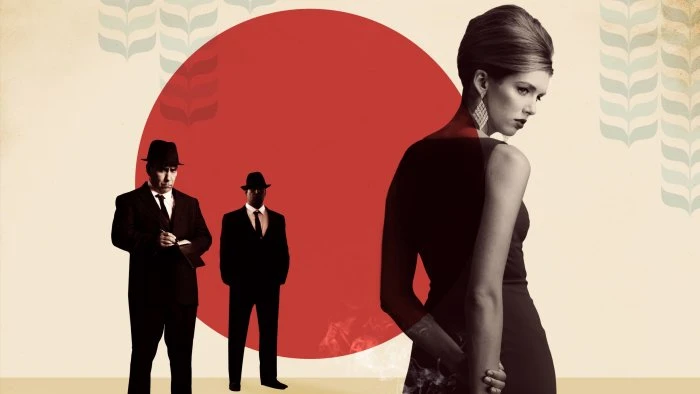
A Crime to Remember takes those traits within us that we would rather not acknowledge and places them squarely in front of us. At the end, I had to admit to myself that my opinion of Sheppard was based solely on an unholy trinity of envy, prejudice and spite. The programme made use of the occasional talking head but it was mainly a well-produced, dramatised version of events leading up to the murder. For all its good intentions, it came too late to help Sam Sheppard. He was eventually found not guilty but died in 1970 after spending the rest of his life still on trial. Dr Sheppard would have had to be a very perceptive man indeed if, on July 3 1954, he had had any idea how his life would pan out. His is a sad tale in which no one got what they deserved. The programme ends with a popular song of the time played over photographs of the characters we have just seen. The images slowly dissolve into those of the real people involved in the case, reminding the viewer that the last hour of entertainment depicted true events that affected breathing, living people. It is a surprisingly effective technique. If you're a fan of high production values, and your assumptions can withstand a rigorous cross-examination, this series has a lot to recommend it.

Retired police lieutenant Joe Kenda of Colorado Springs has charisma by the bucket load. In Homicide Hunter, he kicks back and recounts some of the crimes that he has solved over the course of his twenty-year career. It's basically another re-enactment show, give an extra frisson by narration from the cop who cracked the case and put the bad guys away. Well, my, my, my, Kenda has wisely invoked his right under whichever amendment of the US Constitution it is that allows him to be portrayed by a much better-looking actor in the reconstruction of events. Step forward and take a bow, actor and ex-deputy sheriff Carl Marino. The real thing looks like a hazily recollected photofit picture but, through the power of television, he is re-assembled into a male model.
On the Case with Paula Zahn has Paula interview those involved in old murder cases. I have no idea who she is but I like Paula. She's earnest and business-like but sensitive enough to elicit moving interviews from those involved in events they would rather not talk about. If Paula ever gets tired of being On the Case she should take herself out of her comfort zone and venture down Luxton way for an episode of On the Buseswith Paula Zahn. I would gladly pay the fare of every other passenger on the bus to watch Paula, a ballsy woman of today, go toe to toe with Jack Harper over workers' rights, discrimination in the work place and whether Doreen, the little blonde clippie on the Number 6 really is a raving nymphomaniac. While she's there she could also investigate the truth of the rumour going around the depot that Jack Harper's Red Indian, sorry, Native American, name is Doesn't Get It As Often As He Says He Does.
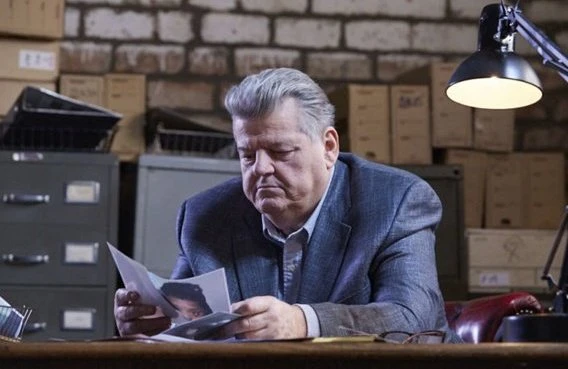
Most of the programmes on the murder channels are American and hosted by people I haven't heard of. It's surprising the familiar faces that show up in their British equivalents. I think Robbie Coltrane must have got the gig on Critical Evidence because of his sterling work as Cracker. In a bid for authenticity, the producers have bunged him behind a desk in a small, dingy room full of filing cabinets. I suppose it's to give the impression that Mr Coltrane really does spend his time thumbing through old files. A good few years ago, he did a comedy pastiche of Edgar Lustgarten, the erudite gentleman who used to present crime shows Scotland Yard and The Scales of Justice. Now, in a nice twist, Coltrane is re-enacting the parody for real. The Man Who Satirised Himself would be a good title for a suspenseful episode of Armchair Theatre, except that there is no great mystery to it because even actors have to put food on the table.
When he is not flicking through files he follows a routine of putting his glasses on, taking them off and putting them on again. The viewer knows that he is dying to do that actorly thing of sucking thoughtfully at the end of one of the arms of his glasses while pondering something that he is pretending to read. He has no doubt been banned from doing so by Equity on the reasonable grounds that no-one ever does this in real life, or if they do they've been watching too much telly.
The last actor I saw pull this trick was Henry McGee (yes, that Henry McGee from Benny Hill and the Honey Monster advert. Always a pleasure, Henry). He did it in an instalment of The Saint entitled Flight Planin which he played, of all things, a lip-reader. It is a venerable episode from 1966 which was recently rolled out on ITV4. It makes use of a plot device beloved of screenwriters everywhere by having William Gaunt play an RAF pilot whose sister is kidnapped so that he is forced to do the bidding of the baddies who have kidnapped her. In this case, he has to steal a prototype aeroplane in the hope that she will be released. Simon Templar manages to keep his libido in check just long enough to take over the controls of the plane and steer it back to good old Blighty. The most interesting thing about the episode was the fine bromance that seemed to be brewing between Simon and the Henry McGee character. I believe this plot development was followed up in the fabled, but now lost, episode The Saint Fancies a Change.
Actor Phil Davis dons the wax jacket to present A Town and Country Murderand I can only think he got the job because he once played the male half of a cop duo with Sarah Lancashire. This one concentrates on how murder affects the community. It includes interviews with people who had nothing to do with the murder, the victim or the investigation but who are more than willing to give their tuppence worth about how they no longer leave the house or, if they do, they make sure they take a baseball bat with them. Phil Davis is a strange choice to front such a programme. I think he's a great and versatile actor (he was wonderful as the policeman in Wall of Silence, shown a few years ago on ITV), but I don't think he looks particularly comfortable being himself in front of the camera.
Ex-EastEnder Tamzin Outhwaite gets a game as presenter of Dateline. Tamzin, an attractive, highly watchable actress, is sadly under-used because all she has to do is introduce the programme, provide recaps after the adverts and close the show. Most of the commentary is provided by an American narrator. I don't know why they don't just show the American programme in its entirety. It is a strange premise, reminiscent of one of those episodes of Murder, She Wrote, in the good old days when murder on television was mostly fictional. Jessica Fletcher would introduce the show, then pass it over to her good friend, the louche investigator Dennis Stanton, before putting her feet up and having a nice cup of tea.
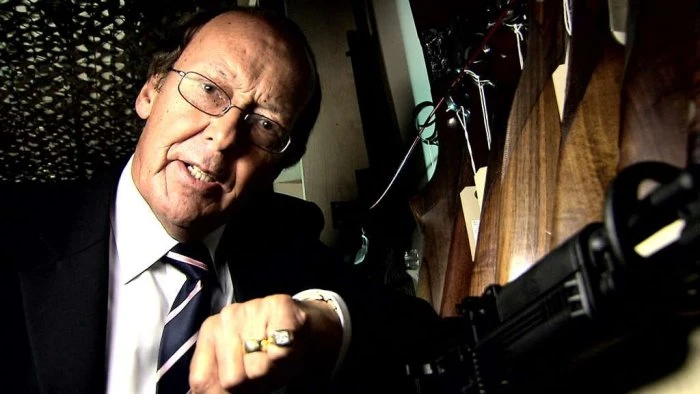
Just when we thought Fred Dinenage had disappeared from our screens for good he pops up with his Murder Casebookdiscussing old British murders. I am not entirely at ease watching Fred discuss evil doings. I much preferred him being cheery on World of Sport, How and Gambit. After Bruce Forsyth, there's no one I'd rather see host a game show involving over-sized playing cards.
I think, all those years ago, my parents were shrewder that I thought by not letting me watch home-grown cop shows. I am comfortable enough watching murderous events unfold in, say, Boston, Mass. but if they happen in Boston, Lincs. that's when the teacup and saucer start to shake in my hand a little bit. Sometimes the Atlantic is more than an ocean three thousand miles wide.
There are other things I have learned from watching the murder channels. If I ever go to America I have made a mental note to beware of any one called Lanny. Most of the murders seem to have been committed by men called Lanny. When I say most, I mean two but that is more than enough for me. A lot of killings seem to take place in Florida so I shall give the sunshine state a miss too. No, I'd best be on the safe side and never venture south of the Mason-Dixon line, no matter how appealing the songs of Al Jolson make it sound.
From watching these programmes, what I would really like to know is who killed the APB? The all-points-bulletin was just minding its own business, being sweetly reminiscent of just about every American cop show you've ever seen when it was callously murdered by person or persons unknown. My money is on the bolo. Like most sensible people of a certain age, I assumed the bolo was that piece of classical music rendered ubiquitous some years ago by the antics of Bo Derek in the film ' 10'. At one time, you couldn't turn on the telly without seeing someone succumb to its rhythmic inducements. This was fair enough on the Hot Shoe Show but I expected more from Peter Snow on Newsnight. As, in the early 1980s, there was a dearth of female news presenters he had to rope in an unwilling John Tusa as a dance partner, leaving the viewer to guess which of the two was supposed to be Bo. Unfortunately, the bolo has nothing to do with classical music. It is an acronym for 'be on the lookout (for)' but sounds more like something you'd see in a text message, after the bit about the latest episode of GoT but before the smiley face.
Cops on the murder channels don't seem concerned by the demise of the APB but they do seem fixated with hooking all and sundry up to a polygraph machine to see whether they're lying or not. It is a reliable source of cheap entertainment in the hands of a skilled peddler of titillation like Jeremy Kyle, but everyone knows that a lie detector test is unreliable so why do the police bother? When the cops aren't wasting electricity on polygraph tests, they're busy saying things that sound good but don't really mean anything, like 'his only consistency was his inconsistency' and, my favourite, 'I'm not ruling anything out and I'm not ruling anything in'. I understand the ruling out part, putting a line through something with a ruler, but how do you rule something in? Unless I'm missing something, the ruling in part doesn't mean anything at all. A policeman has probably heard someone else use the phrase and thought 'That sounds good, I'll have to use that the next time I'm interviewed by a TV crew.'
Still, the not ruling anything in routine comes in useful whenever I want to wind up my wife. When she asks me what I want for my tea I often reply 'Well, Fiona, I'm not ruling anything out and I'm not ruling anything in.' It annoys her no end. Her name's Julie, for a start.
As wives usually do, she will probably have the last laugh. She will foully do me to death and then get community service because she was driven to it by me getting her name wrong and telling her that I'm not ruling anything out and I'm not ruling anything in when she asks me if I would like a cup of tea. To put the black cap on it, she'll no doubt be interviewed by Fred Dinenage, wearing his serious face, for one of his Murder Casebooks. Call that justice? I don't but neither can I ignore the undeniable truth that what goes around comes around.
If my wife's reading this I think she should be played in the re-telling by Kate Winslet (if she's not, Anna Karen). The only thing left now is to consider who would play me. It's strange how we delude ourselves. In my early twenties, I used to wear round glasses and fancied that I looked not a little like John Lennon. Everyone else thought I looked a lot like Curly Watts from Coronation Street. So, as Teesside acting favourite Bill Fellows seems to be busy doing voice overs and looks nothing like me, I'll settle for the bloke who played Curly to portray me. I just hope he has aged better than I have.
Published on February 22nd, 2019. Written by Andrew Cobby (April 2018) for Television Heaven.


